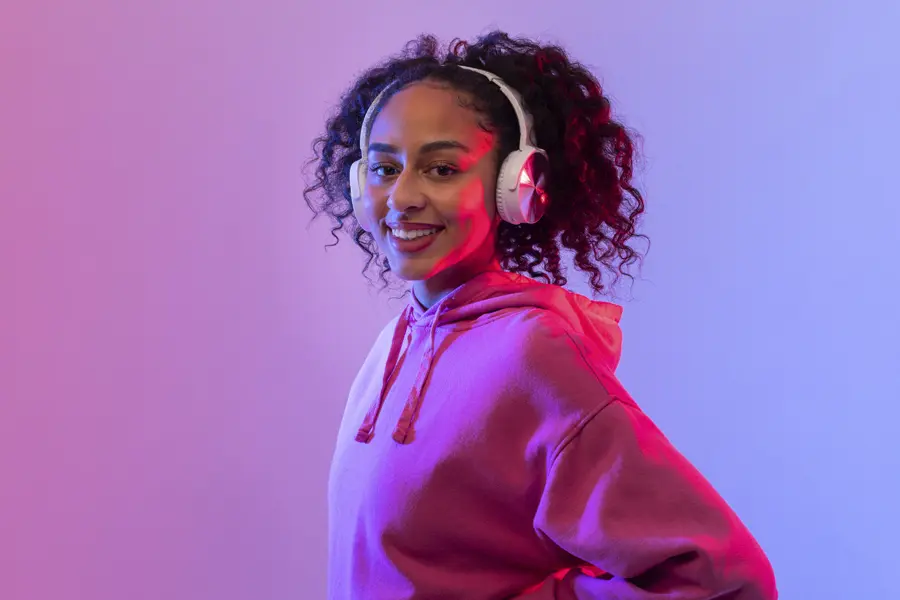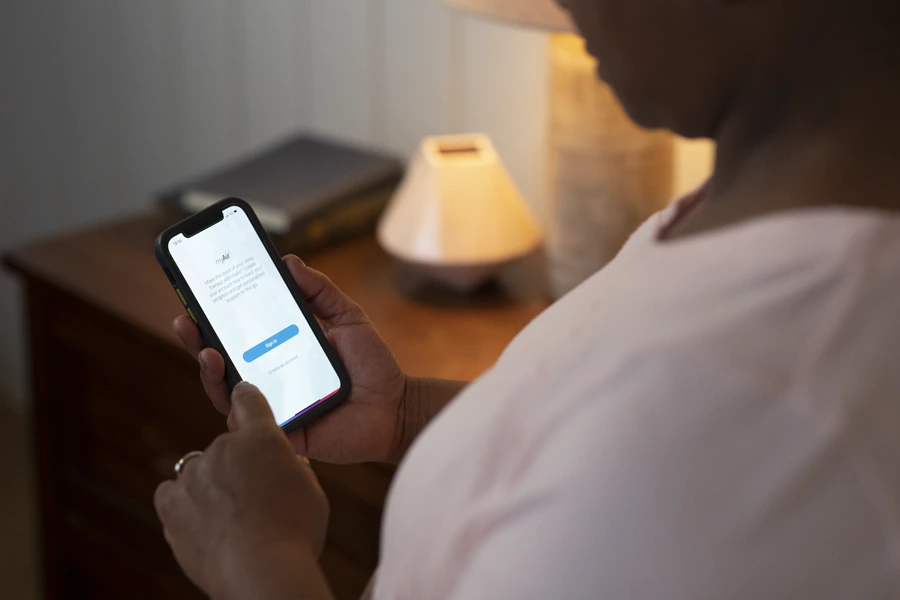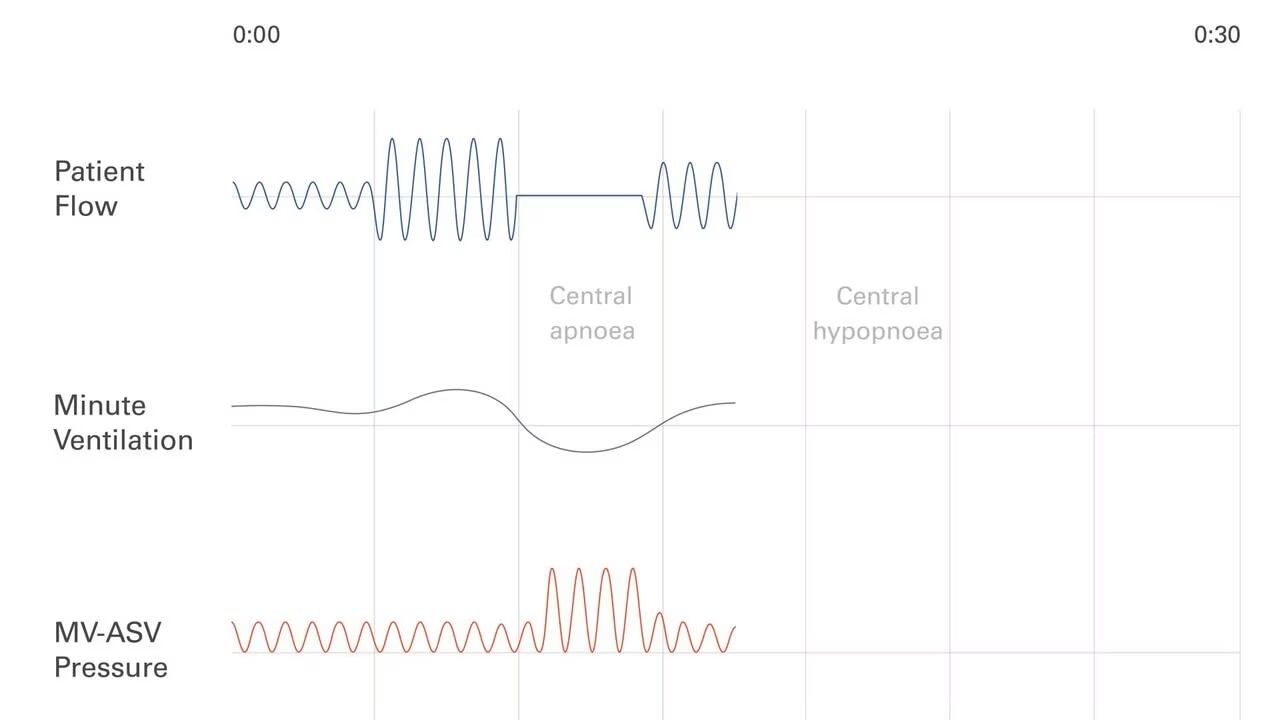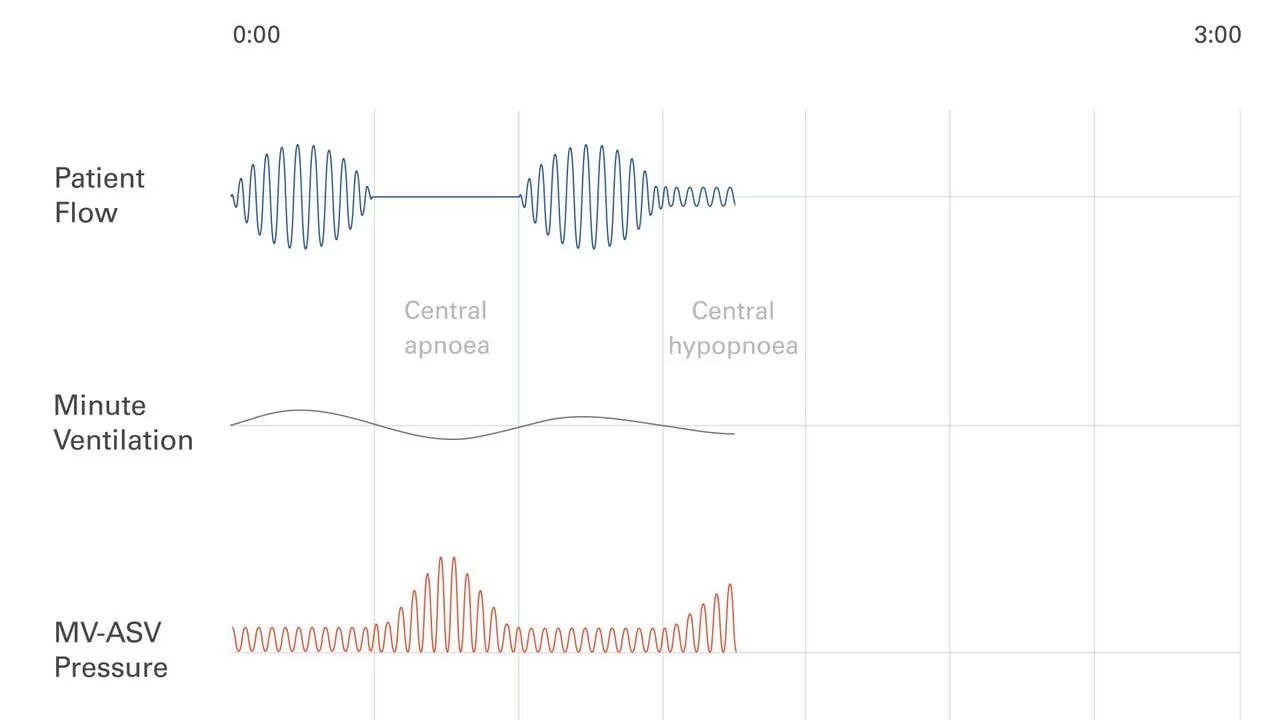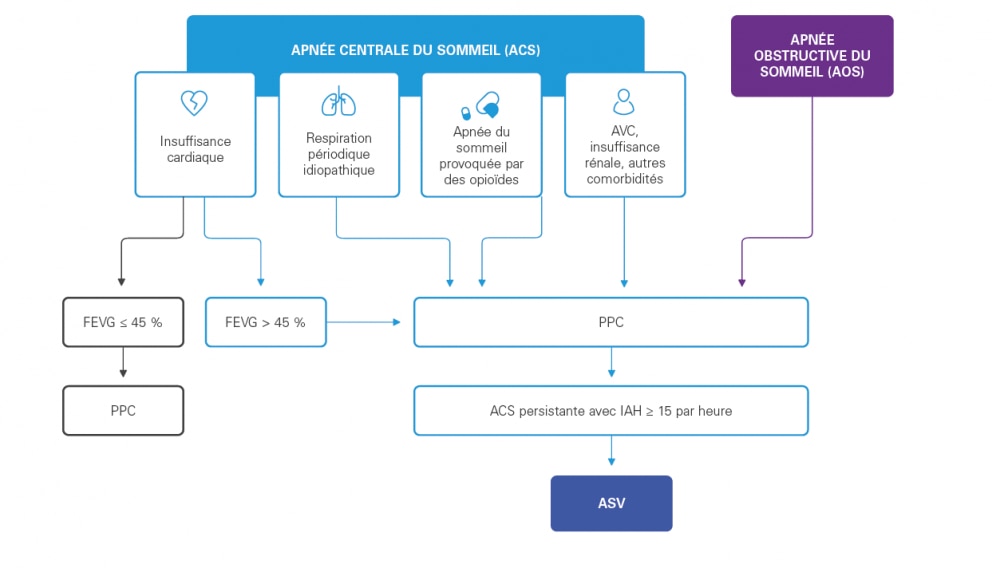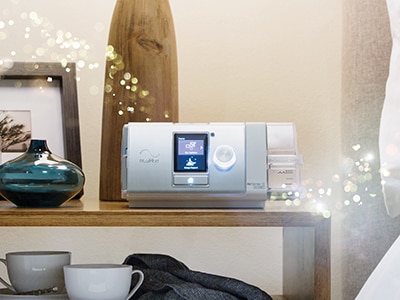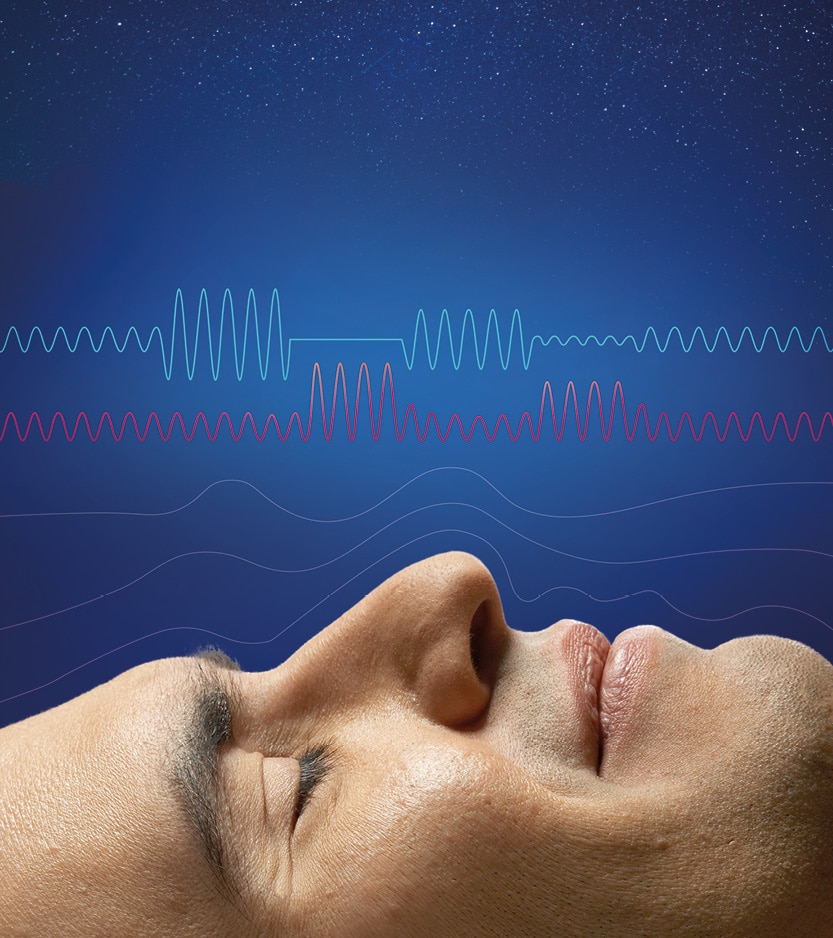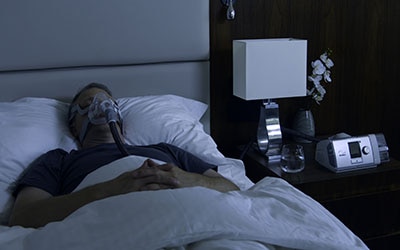
Comment traiter les patients souffrant d’apnée centrale du sommeil ?
Découvrez comment la solution de Ventilation Auto-Asservie (VAA ou ASV)* de Resmed favorise l’harmonie, la sécurité et le confort.
* Le traitement par ventilation auto-asservie (VAA ou ASV) est contre-indiqué chez les patients atteints d’insuffisance cardiaque chronique symptomatique (New York Heart Association 2-4) avec une fraction d’éjection ventriculaire gauche réduite (FEVG ≤ 45 %) et un syndrome d’apnées du sommeil modéré à sévère et à prédominance centrale (> 50 % d’évènements centraux).
Références :
- Pépin JL et al. Adherence to positive airway therapy after switching from CPAP to ASV: a big data analysis. J Clin Sleep Med. 2018;14(1):57-63.
- Cistulli PA, Armitstead J, Pepin JL, Woehrle H, Nunez CM, Benjafield A, Malhotra A. Short-term CPAP adherence in obstructive sleep apnoea: a big data analysis using real world data. Sleep Med. 2019 Jan 11. Pi:S1389-9457(18)30797-4.
- Carnevale et al. Effectiveness of Adaptive Servo-Ventilation in the treatment of hypocapnic central sleep apnoea of various etiologies Sleep Medicine 2011 Dec;12(10):952-8
- Allan et al. Efficacy of adaptive servo ventilation in treatment of complex and central sleep apnoea syndromes Chest 2007;132:1839-46
- Morgenthaler et al. Adaptive servoventilation versus noninvasive positive pressure ventilation for central, mixed and complex sleep apnoea syndromes. Sleep 2007 ; 30(4) :468-75
- Brown et al. A retrospective case series of adaptive servoventilation for complex sleep apnoea. J Clin Sleep Med 2011 ;7(2):187-95
- Randerath W et al. Definition, discrimination, diagnosis and treatment of central breathing disturbances during sleep ERJ Express. Publié le 5 décembre 2016 en tant que doi : 10.1183/13993003.00959.-2016
Date de modification : 08/2020
